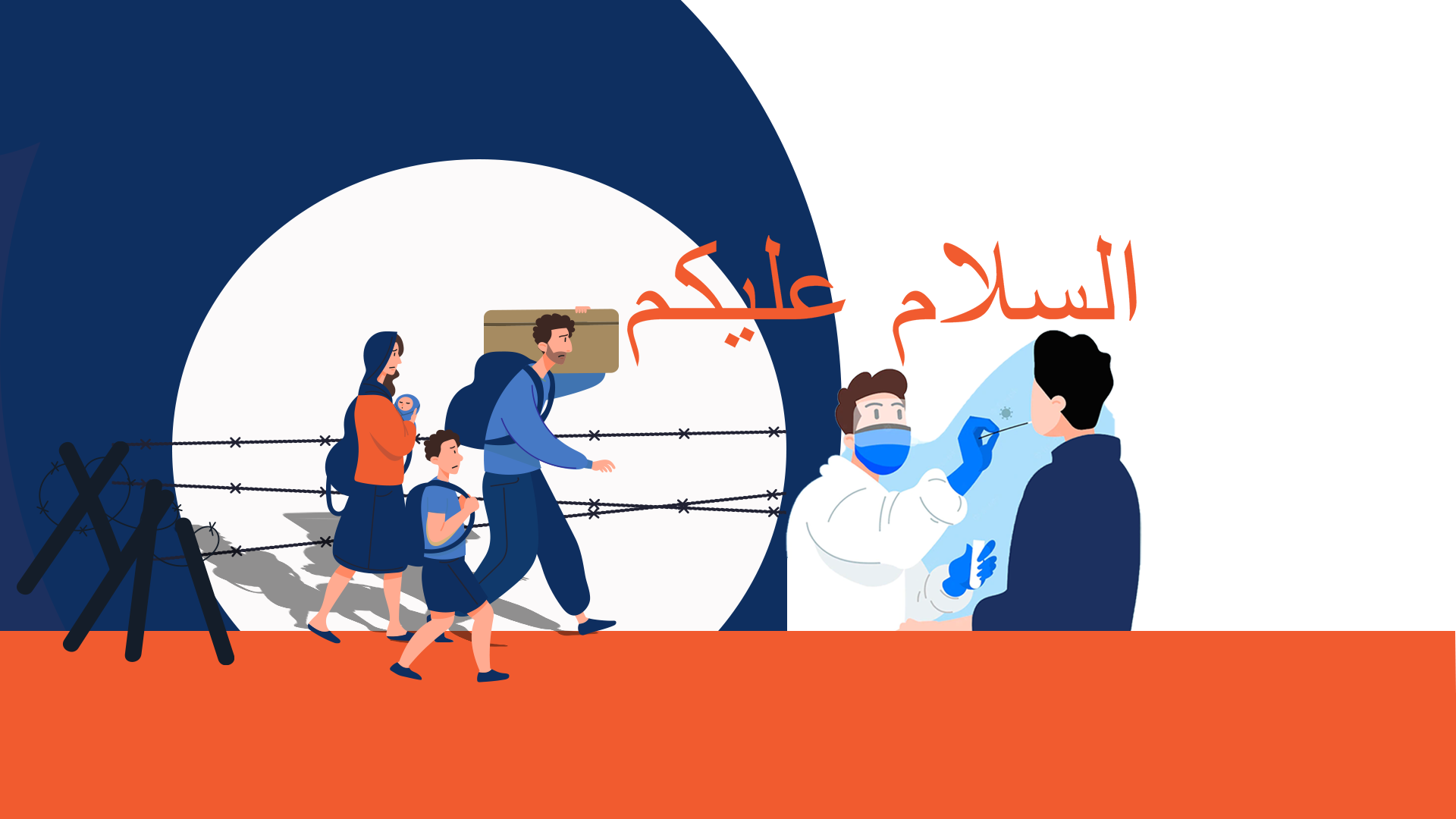Displaced peoples were once a far-away issue for many of us—someone else’s concern. But now, displaced peoples and refugees from global hot spots arrive daily at cities and towns across the United States. It is easy to imagine how a local municipality could be overloaded when thousands of refugees show up with acute needs, from healthcare to trauma, as they flee brutal conditions in their country, including war. But our towns and communities show resilience as they find ways to meet these human needs—including the basic need of interpreting and translating language.
International Need Meets Specialized Local Help
For example, California has seen a 33% increase to the 60,000 Ukrainian immigrants living in the state—which already has thriving Slavic communities in several cities. Even so, absorbing refugees into existing towns and communities requires specialized help and ongoing coordination, especially since thousands of refugees can show up very quickly.
Refugees can arrive with immediate needs and conditions, for instance, pregnancy, high blood pressure, and diabetes. Each of those needs can require immediate care, and all of those needs are exacerbated by language barriers. People fleeing war can arrive with additional mental health needs as well due to the traumatic situations they have left. Whether the requirements are more acute or more benign, each step of the care process requires concentrated human resources to help triage (first) and then offer help.
The availability of skilled human resources has become a problem for many California cities. Some of these cities had seen reduced budgets for social services over time, resulting in limited budget capacity for helping these influxes of people. However, the California Department of Health Care Services issued an advisory reminding local governments to enroll refugees in health programs because those not eligible for federal services may be eligible for state services.
The need in California highlights the need for specialized care—such as interpreters who are familiar with medical terminology—to help bridge the language and care barriers. What happened in Philadelphia makes that point more specifically.
25,000 Afghan Refugees: A Philadelphia Success Story
In August of 2021, during a planned withdrawal of U.S. troops from Afghanistan after 20 years of war, tens of thousands of refugees were evacuated to the United States. The need for a quick response and expert, specialized interpretation came to bear as Philadelphia welcomed 25,000 of these evacuees—with only 48 hours’ notice for city officials.
Safely accepting large numbers of refugees on such short notice was logistically complicated for the reasons already stated. But these refugees were especially vulnerable because of arriving from a war zone. Many, if not most, had been through deeply traumatic experiences on their way here. City leaders knew they would need Dari and Pashto interpreters to welcome and screen the evacuees. If those interpreters could also come with soft skills and deep emotional intelligence—that would be ideal in helping acclimate the traumatized evacuees.
Beyond all those specific needs, a global pandemic continued to rage, making public events difficult, if not impossible. Helping the Afghan refugees was a very tall order, indeed.
Specialized Interpreters Delivered
United Language Group (ULG) proved to be an invaluable partner in meeting the need. ULG came equipped with 35 years of experience providing language services for the medical sector and working with public health departments.
We used a rigorous testing process to locate interpreters who fit the need well and brought interpreters from as far away as Virginia. Then we provided interpreting services on demand for three weeks, 24 hours a day. In addition, we also:
- Worked with the Office of Immigrant Affairs to find and deploy interpreters with 48 hours’ notice.
- Screened potential interpreters to find candidates with the right mix of language expertise and soft skills to support this vulnerable population.
- Offered interpreting coverage for COVID screenings and medical evaluations as planes of refugees came in at all hours of the day and night.
Strong Results in Philadelphia
The results of the program were impressive. Approximately 25,000 refugees went through screening at the Philadelphia airport.
- Interpreting services were provided for three weeks with 24-hour coverage.
- The City of Philadelphia implemented safe quarantine protocols to mitigate the spread of COVID.
- Refugees received necessary medical care immediately upon arrival.
- The evaluation process reduced barriers to care and prevented later emergency room visits.
Helping process and settle refugees and displaced people can seem like a big, nearly insurmountable job for a local community. But communities in California, Philadelphia, and many other locations have risen to the challenge. Locating well-resourced partners who have access to those who can bridge language and care goes a long way toward making that happen.
Contact ULG for more information about helping local and state governments settle newly-arrived refugees.



